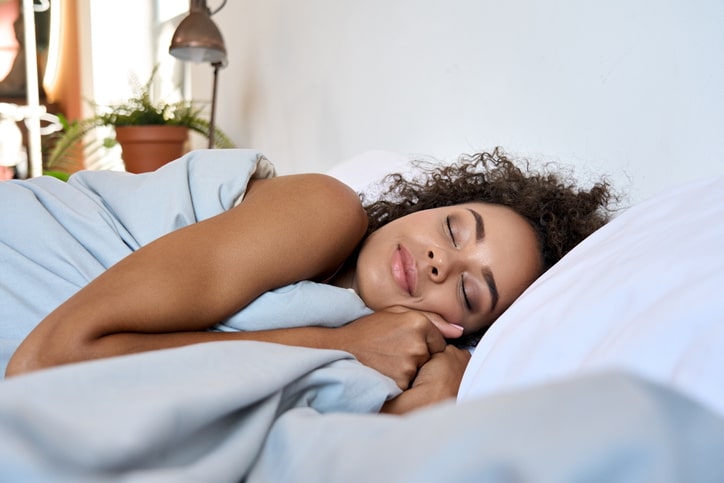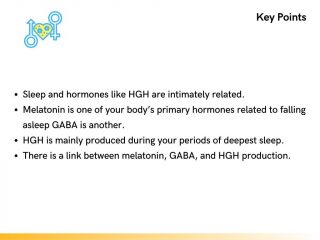
Discover how melatonin, GABA, and serotonin are connected to HGH production and find out if taking melatonin-containing supplements can help you increase your growth hormone levels.
Does Melatonin Help Produce HGH?
There is a link between melatonin and your body’s ability to produce human growth hormone (HGH).
HGH is one of your body’s most important hormones. The majority of your HGH is produced during your periods of most restful sleep. Melatonin is the hormone that regulates your sleep cycles, so it should come as no surprise that there is indeed a connection between melatonin and efficiently producing adequate amounts of HGH.
There is evidence to suggest that supplemental melatonin, which can help improve poor or disturbed sleep, can also help improve your HGH levels. However, melatonin is not seen as a treatment for growth hormone deficiencies. The only approved treatment for patients diagnosed with growth hormone deficiency — including those caused by age-related HGH loss — is prescription HGH injections like those provided by the doctors at our clinics.
What Is Melatonin?
Melatonin is a hormone released by the pineal gland. As the sun sets and darkness ensues, it triggers your body to release melatonin which begins to stimulate sleep. As the sunrises, the light causes less melatonin production, and this signals you to awaken.
Because of its natural effect on your sleep/wakefulness cycle, melatonin has also become a quite popular over-the-counter or “natural” sleep aid. It has been estimated by the CDC that over three million Americans are using melatonin or melatonin-containing supplements to treat insomnia. 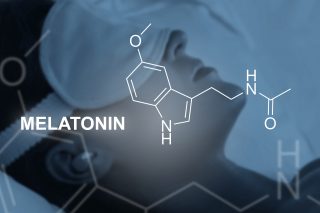
As described earlier, melatonin is naturally produced by your body. The release of melatonin does not knock you out or put you to sleep, but as its level rises in the evening and in response to darkness, it puts you into a relaxed state conducive to sleep. Several studies have shown that supplements containing melatonin can promote the same state and/or act as an adjunct to your natural production of melatonin.
Many doctors now recommend melatonin as a drug-free solution for occasional bouts of insomnia.
There is reliable research that clearly shows the ability of melatonin supplements to provide for more restful sleep. Many of these same studies — as well as ones that specifically looked into the link — have found that supplemental melatonin may also be an effective way of naturally boosting HGH.
The Connection Between Melatonin and Growth Hormone
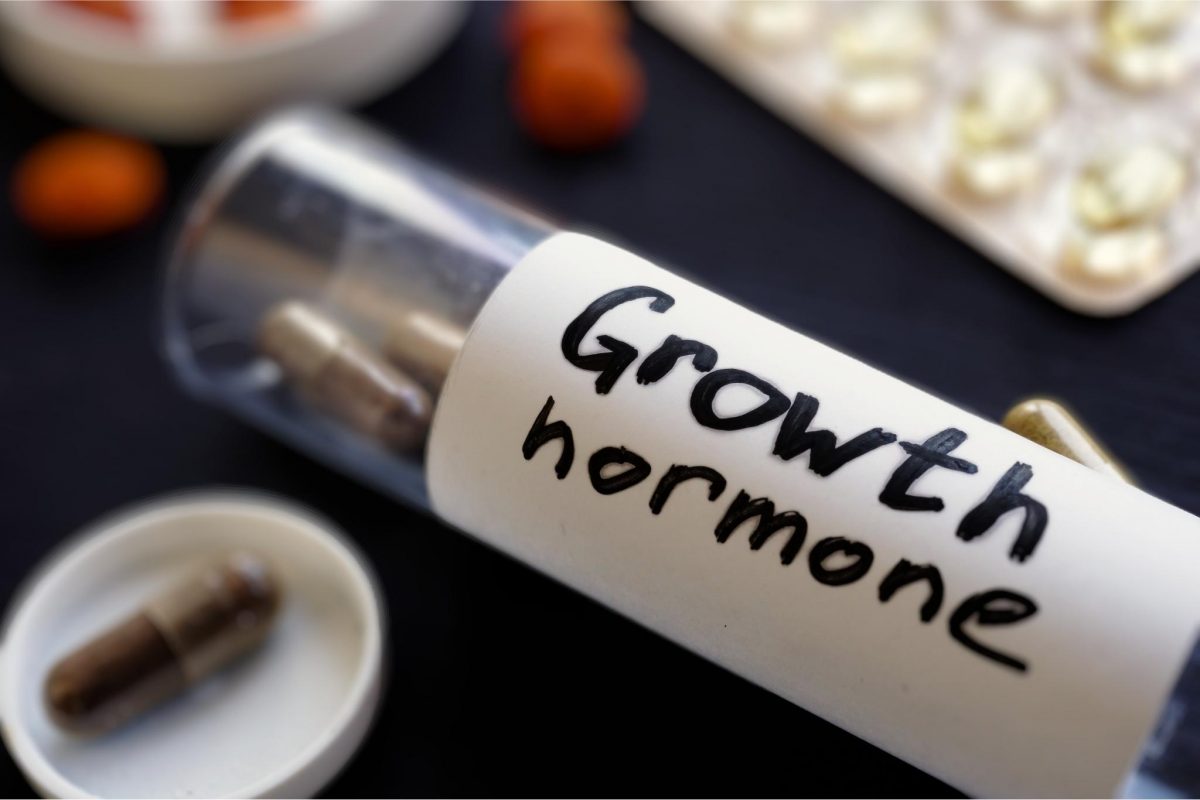
HGH is one of your body’s most critical hormones. Like another critical hormone, testosterone, most of your HGH is produced while you are in your deepest sleep. Since melatonin helps to provide you with deep, restful sleep, it stands to reason that there would be a connection between HGH and melatonin.
Our hormone doctors know full well how disturbed sleep and conditions that cause poor sleep can significantly reduce the amount of HGH your body produces. In fact, getting a good night’s sleep is one of the ways we try to advise our HGH therapy patients to improve HGH production.
Do Melatonin, GABA, and Serotonin Increase HGH levels?
Studies have indicated that supplemental HGH can increase HGH levels indirectly by providing more restful sleep. Interestingly enough, these studies also indicate that the release of melatonin by the pineal gland may also increase HGH production directly as well. There is some evidence that chemically, melatonin can behave somewhat like a growth hormone-releasing peptide and trigger the hypothalamus to tell the pituitary gland to make and release more HGH.
Melatonin is not the only chemical naturally produced by your body that can influence HGH production and sleep. GABA is another hormone that influences sleep, and therefore, it too can impact HGH production. GABA or gamma-aminobutyric acid counteracts the “excitatory neurotransmitters” that stimulate alertness. It calms the activity of neurons. GABA is the chemical that basically allows you to “shut your brain down” and relax, which helps promote sleep.
Serotonin is not a hormone but a similar biological compound known as a neurotransmitter. Neurotransmitters such as serotonin have also been found to influence the production and release of certain critical hormones such as HGH and testosterone. Serotonin stabilizes your mood and provides feelings of well-being and happiness. As such, it reduces stress and, therefore, can help you feel relaxed and get a better night’s sleep.
Can Taking Supplements With Melatonin Boost Growth Hormone?
There is evidence to suggest that taking melatonin or melatonin-containing supplements could boost your HGH levels.
One of the first such studies to establish a link between melatonin and the increased secretion of HGH was published in 1993 in the journal Clinical Endocrinology. The authors of the study concluded that:
“There is evidence that melatonin plays a role in the regulation of HGH secretion. Our data indicate that oral administration of melatonin to normal human males increases HGH release and HGH responsiveness to growth hormone-releasing hormones.”
How to Increase Melatonin Levels for Increased HGH Production
There are some ways to naturally increase your production of melatonin and, therefore, by extension, perhaps increase HGH production. Some of the ways to naturally increase melatonin include the following:
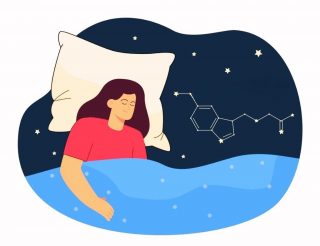
- Keep your light dim just prior to sleep.
- Reduce your time in front of phone, computer, and TV screens.
- Cut back on coffee and alcohol consumption.
- Try to eat a healthy diet and add foods known to contain melatonin, such as tart cherries and oily fish.
- Find ways to reduce stress.
Conclusion
Science has definitely found a link or connection between melatonin and HGH. However, while melatonin-containing supplements have been found to be an effective natural sleep-aid, they should not be construed as a treatment for growth hormone deficiency, or GHD. The only approved treatment for adults diagnosed with GHD, even “age-related” GHD, or the drop in HGH that happens to all of us as we age – is prescription growth hormone injections like those provided by our hormone clinics.
Frequently Asked Questions About Melatonin and Melatonin Supplements
Does melatonin have any side effects?
Since it is an effective sleep aid, one potential side effect of melatonin is daytime tiredness. So, you should only take it when you have the opportunity of getting at least 7 to 8 hours of sleep. Other possible side effects include headache, dizziness, and nausea.
What foods have melatonin?
There are some foods that contain melatonin, but not in amounts anywhere near the effectiveness levels found in most supplements. These include tart cherries, goji berries, eggs, milk, oily fish, and nuts.
Is melatonin addictive?
No, since it is a naturally occurring hormone, your body cannot become addicted to or “dependent” upon melatonin. Addiction is not a possible side effect of melatonin use.
Should melatonin be used long-term?
While you cannot form a physical addiction to using melatonin for sleep, most doctors recommend that you use it only for short periods or occasional bouts of insomnia. Chronic sleep problems could be caused by some underlying medical conditions, and if you are having trouble sleeping for weeks or months at a time, you should see your doctor.

